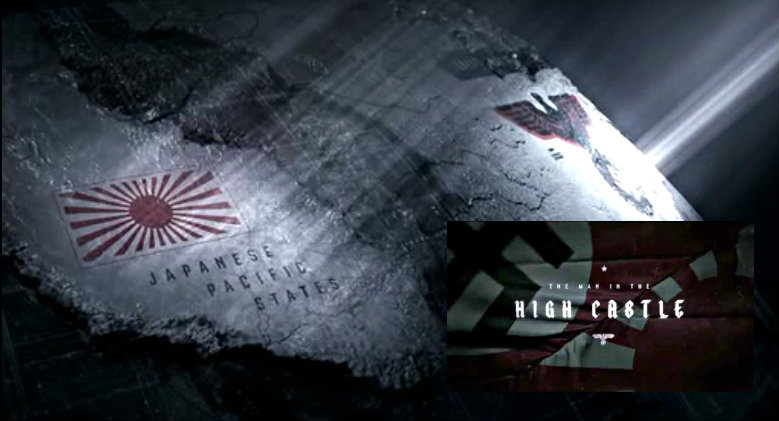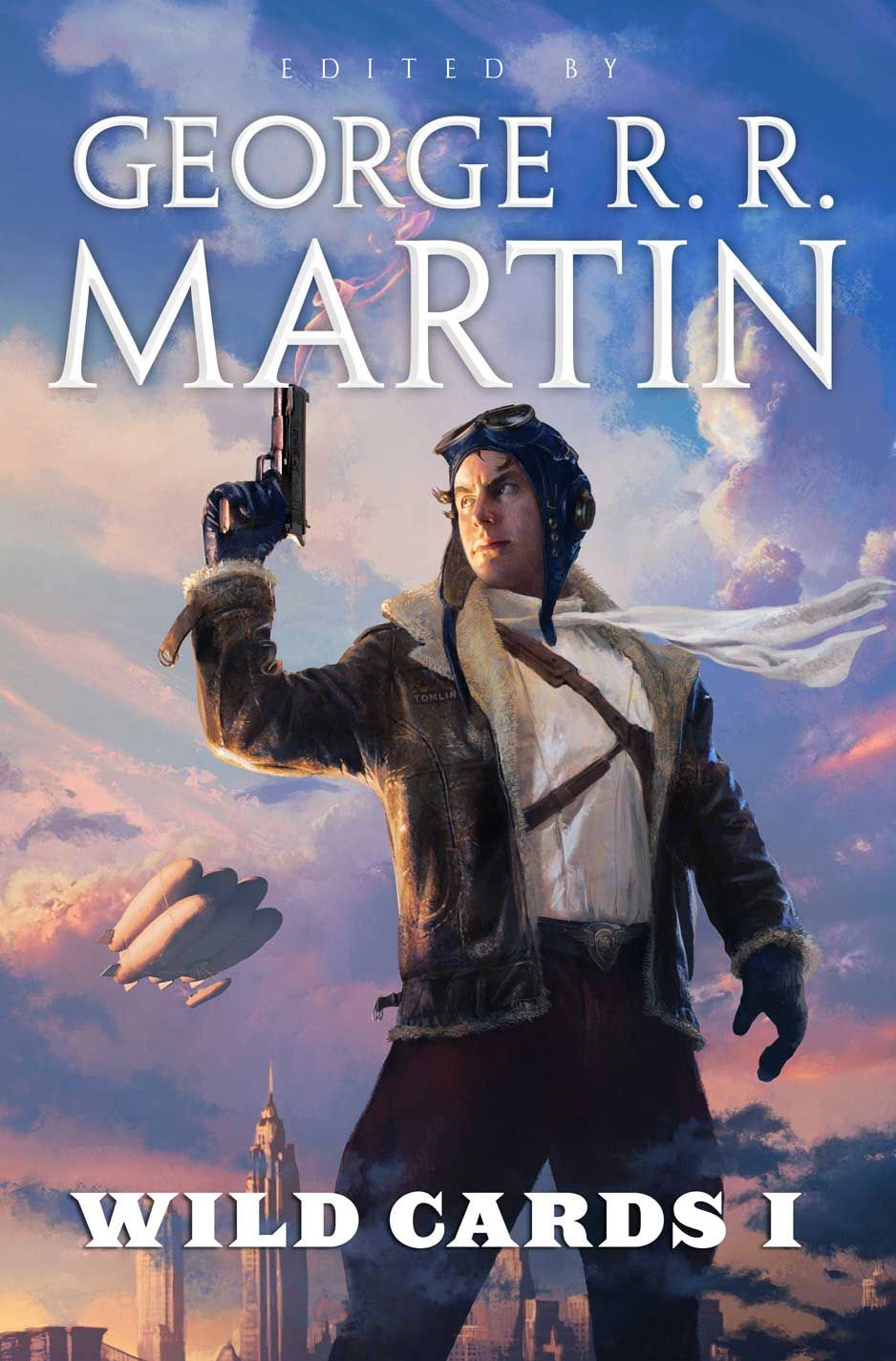 Skip forward 3 years and I read Dangerous Visions, Harlan Ellison's ground-breaking sci-fi anthology. Now, I'll tell you straight up, Harlan Ellison's story in that anthology was perhaps my least favorite - but I loved his introductions and epilogues for each story.
Skip forward 3 years and I read Dangerous Visions, Harlan Ellison's ground-breaking sci-fi anthology. Now, I'll tell you straight up, Harlan Ellison's story in that anthology was perhaps my least favorite - but I loved his introductions and epilogues for each story.My favorite story was Philip K. Dick's "Faith of Our Fathers", in which the hero discovers that there really are drugs in the water - but everyone in the world is having the same hallucination. It's the anti-hallucinogens that create different realities for everyone. That alone made me sit up and look around. But what really stuck with me was this quote from Mr. Dick in the epilogue:
"The last word, however, on the subject of God may have already been said: in A.D. 840 by John Scotus Erigena at the court of the Frankish king Charles the Bald. "We do not know what God is. God Himself does not know what He is because He is not anything. Literally God is not, because He transcends being." Such a penetrating—and Zen—mystical view, arrived at so long ago, will be hard to top; in my own experiences with psychedelic drugs I have had precious tiny illumination compared with Erigena."THAT still rings through my mind regularly, like a deep hum, like the cry of a peacock, like a distant bell.
It also caused me to start reading history. Who were those Frankish kings? What else did Erigena say or write? Who influenced him? Why was a Celt at the Frankish court? All damn good questions that launched me - after a wildly improbable twenty years or so - into becoming an historian.
A good anthology will rattle your cage for years, which is why I don't let go of them when I find them. (My copy of Dangerous Visions is tattered and brown-paged by now, but still readable. It will see me out.)
There's 1962's "The Best From Fantasy and Science Fiction, 11th Series" edited by Robert P. Mills. Among the great stories:
- The fabulously written Alpha Ralpha Boulevard, which introduced me to Cordwainer Smith's Instrumentality of Mankind stories, and the idea of the Underpeople, derived from animals, who are given human form, speech, and intellect but have absolutely no civil rights. If they make any mistake, they can/will be destroyed. Something else that make me look at what was going on around me.
- Kurt Vonnegut's Harrison Bergeron, about a world of enforced equality - to the lowest common denominator of everything.
- And the mystical, fabulously beautiful, The One Who Returns by John Berry, which gave me a new view of what a Yeti might really be.

And then there are the weird collections you find in the antique stores. A Treasury of the Familiar, chock full of poetry from the 19th century, Bible quotations, Washington's and Lincoln's political speeches, Edgar Allan Poe, Victorian songs, Spartan defiances, a little bit of everything.
The Holiday Reader, 1947, edited by Bernard Smith and Philip Van Doren (which instantly makes me think of Dorothy Parker saying, "I put myself to sleep counting Van Dorens"...) This tome is divided into sections: Stories (Hemingway to Hecht), Humor (Beerbohm, Lardner, Benchley, Parker, etc.), Travel (including Thomas Wolfe, Rachel Carson, and both D. H. and T. E. Lawrence), Poetry (everything from sonnets to E. E. Cummings), and Eating and Sleeping (worth it for M. F. K. Fisher's Madame is Pleased) and Mystery Fantasy & Murder.
 Especial shout-outs to E. M. Forster's The Machine Stops (which only gets more timely every year), M. R. James Oh, Whistle, and I'll Come to You, My Lad, (scared the bejeezus out of me) and Raymond Chandler's I'll be Waiting. Imho, one of the best in this collection is Irwin Shaw's Search Through the Streets of the City, which is about as noir as you can get without a murder.
Especial shout-outs to E. M. Forster's The Machine Stops (which only gets more timely every year), M. R. James Oh, Whistle, and I'll Come to You, My Lad, (scared the bejeezus out of me) and Raymond Chandler's I'll be Waiting. Imho, one of the best in this collection is Irwin Shaw's Search Through the Streets of the City, which is about as noir as you can get without a murder.BTW, long ago I made a grave mistake and gave away a paperback collection of 50 Great Short Stories which included a story about a man whose male friends successively date this woman who is beautiful, intelligent, just amazing... And she cares so tenderly, lovingly, for each of them as they contract this or that fatal illness. And then he gets sick and she comes to take care of him... Does this ring a bell with anyone?
 Another great find was the 1957 "A Treasury of Great Mysteries". I don't know how they got the rights to all of these, which include Christie's Murder in the Calais Coach, Du Maurier's Rebecca, Ambler's Journey Into Fear, and Chandler's The Big Sleep. That right there made it worth the $2.00 charge.
Another great find was the 1957 "A Treasury of Great Mysteries". I don't know how they got the rights to all of these, which include Christie's Murder in the Calais Coach, Du Maurier's Rebecca, Ambler's Journey Into Fear, and Chandler's The Big Sleep. That right there made it worth the $2.00 charge.Also a number of truly great short stories by most of the icons of 1950s mystery writing, including Inspector Maigret, in Maigret's Christmas, Erle Stanley Gardner's Perry Mason in The Case of the Crimson Kiss (a pretty severe lesson in choosing roommates), and the original short story Rear Window (William Irish).
But my personal favorite is Rex Stout's Instead of Evidence.
"Archie Goodwin," she said. "You think I'm terrible, don't you? You think I'm an awful woman, bad clear through. Don't you?"You can't get much more noir than that.
"I'm not thinking, lady. I'm just an errand boy."
The funny thing was that if at any moment up to then I had made a list of the ten most beautiful women she would not have been on.






















